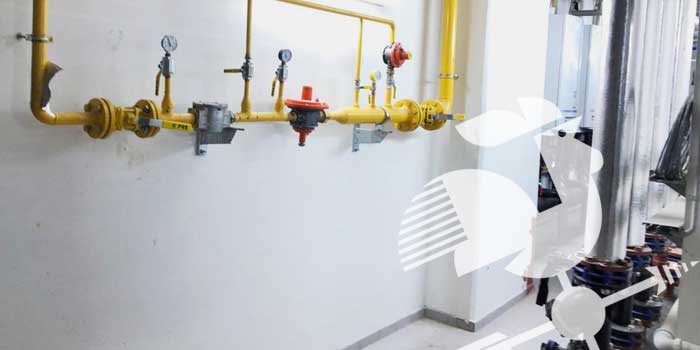
Forex trading has become one of the most lucrative and dynamic markets globally, with billions of dollars being exchanged daily. The demand for advanced trading knowledge has led to the emergence of numerous forex trading school LATAM Trading Brokers and Forex trading schools. These institutions are vital for anyone looking to navigate the complex waters of currency trading. In this article, we will explore the various aspects of Forex trading schools, their benefits, how to choose the right one, and what to expect from your educational journey.
What is a Forex Trading School?
A Forex trading school is an institution or course that provides education and resources geared towards helping individuals learn the intricacies of Forex trading. These schools cover a broad spectrum of Forex-related topics, from basic concepts to advanced trading strategies. They often provide a combination of theoretical knowledge and practical training, ensuring that students can apply what they learn in real-world scenarios.
Importance of Forex Trading Education
The Forex market is known for its volatility and complexity. As such, a solid educational foundation is crucial for achieving success in trading. Here are some reasons why pursuing Forex education is important:
- Understanding Market Mechanics: Forex trading is influenced by various factors including economic indicators, geopolitical events, and market sentiment. Education helps traders understand these mechanics.
- Risk Management: Successful trading is not solely about making profits; it’s also about managing risk. A trading school teaches students how to protect their capital.
- Developing Trading Strategies: Traders need a well-defined strategy to succeed. Education helps individuals develop and refine their trading strategies based on research and practice.
- Building Confidence: Knowledge is power; the more you know, the more confident you become in your trading decisions.

Components of a Good Forex Trading School
When evaluating Forex trading schools, it’s essential to look for specific components that indicate quality and effectiveness. Here are critical elements to consider:
- Course Content: A comprehensive curriculum should cover everything from the basics of Forex trading to advanced strategies, technical analysis, and risk management.
- Experienced Instructors: Instructors should have a proven track record in Forex trading and education, with expertise to guide students effectively.
- Practical Training: Look for schools that offer demo trading accounts or simulations where students can practice their skills in a risk-free environment.
- Feedback and Support: Effective learning includes feedback. Ensure the school offers robust support and mentorship options.
- Accreditation and Reputation: Research the school’s background, read reviews, and check for any certifications or affiliations that enhance its credibility.
Types of Forex Trading Schools
Forex trading education can take various forms. Understanding these can help you find the right fit for your learning style:
- Online Courses: Many Forex schools offer comprehensive online classes that students can take at their own pace. These often include video lectures, quizzes, and community forums.
- In-Person Workshops: Some individuals prefer direct interaction. In-person workshops provide hands-on training and networking opportunities.
- Webinars and Live Classes: These sessions can be a great way to learn from experts in real-time and ask questions as they arise.
- Self-Paced Learning: For those with busy schedules, self-paced learning options may be more suitable, allowing you to learn whenever it’s convenient.
How to Choose the Right Forex Trading School
Selecting the right Forex trading school is a crucial step in your trading journey. Here are some tips to guide your choice:
- Define Your Goals: What specifically do you want to learn? Different schools may excel in various areas—identify yours and align them with the school’s offerings.
- Research: Look into the school’s reputation. Online reviews, testimonials, and recommendations can be incredibly useful.
- Check Curriculum: Review the course syllabus to ensure it covers the topics you most want to learn about.
- Trial Classes: Many schools offer trial classes or introductory sessions. Take advantage of these to gauge the teaching style and content quality.
- Interact with Alumni: Speaking to past students can provide insights into the school’s effectiveness and outcomes.
What to Expect from a Forex Trading Course
If you’ve chosen a Forex trading school, you can expect a structured learning experience. Here’s a breakdown of what typical courses might include:
- Market Fundamentals: Courses usually start with an overview of the Forex market, including its history, terminology, and major currency pairs.
- Technical Analysis Skills: Students learn to read price charts, interpret indicators, and understand market patterns.
- Fundamental Analysis: This part focuses on understanding how news, economics, and events affect currency movements.
- Hands-On Trading: Most courses incorporate simulation trading, economic analysis, and developing your own trading plan.
- Community Engagement: Educational platforms often emphasize collaboration among students, providing forums and groups for discussion.
Conclusion
Embarking on the journey to becoming a proficient Forex trader requires dedication, discipline, and a solid educational foundation. By choosing the right Forex trading school, you equip yourself with the knowledge and skills necessary to navigate the challenges of the currency market successfully. With the right guidance, you can develop effective strategies and gain the confidence to make informed trading decisions, ultimately leading to success in the Forex trading world.




